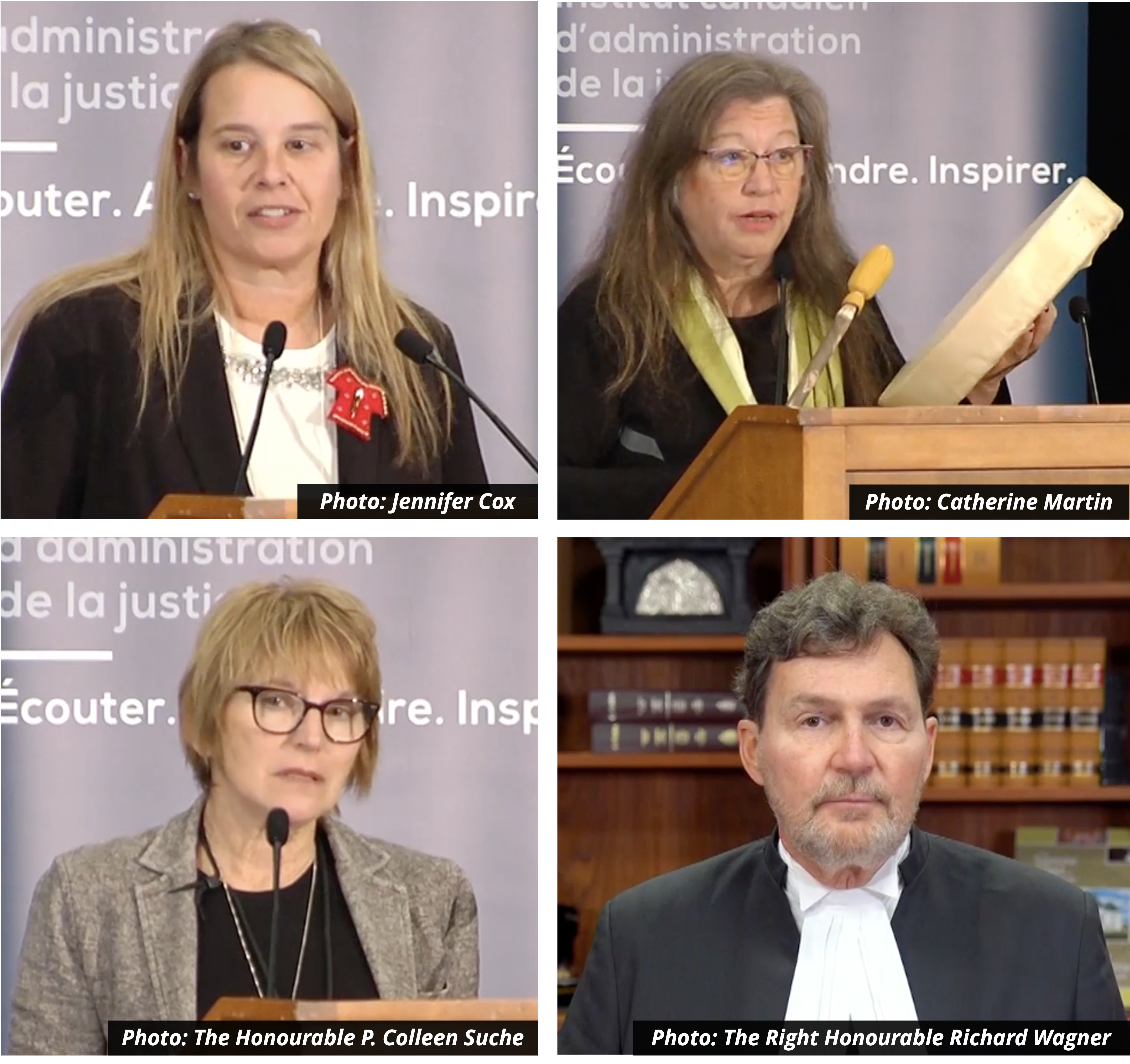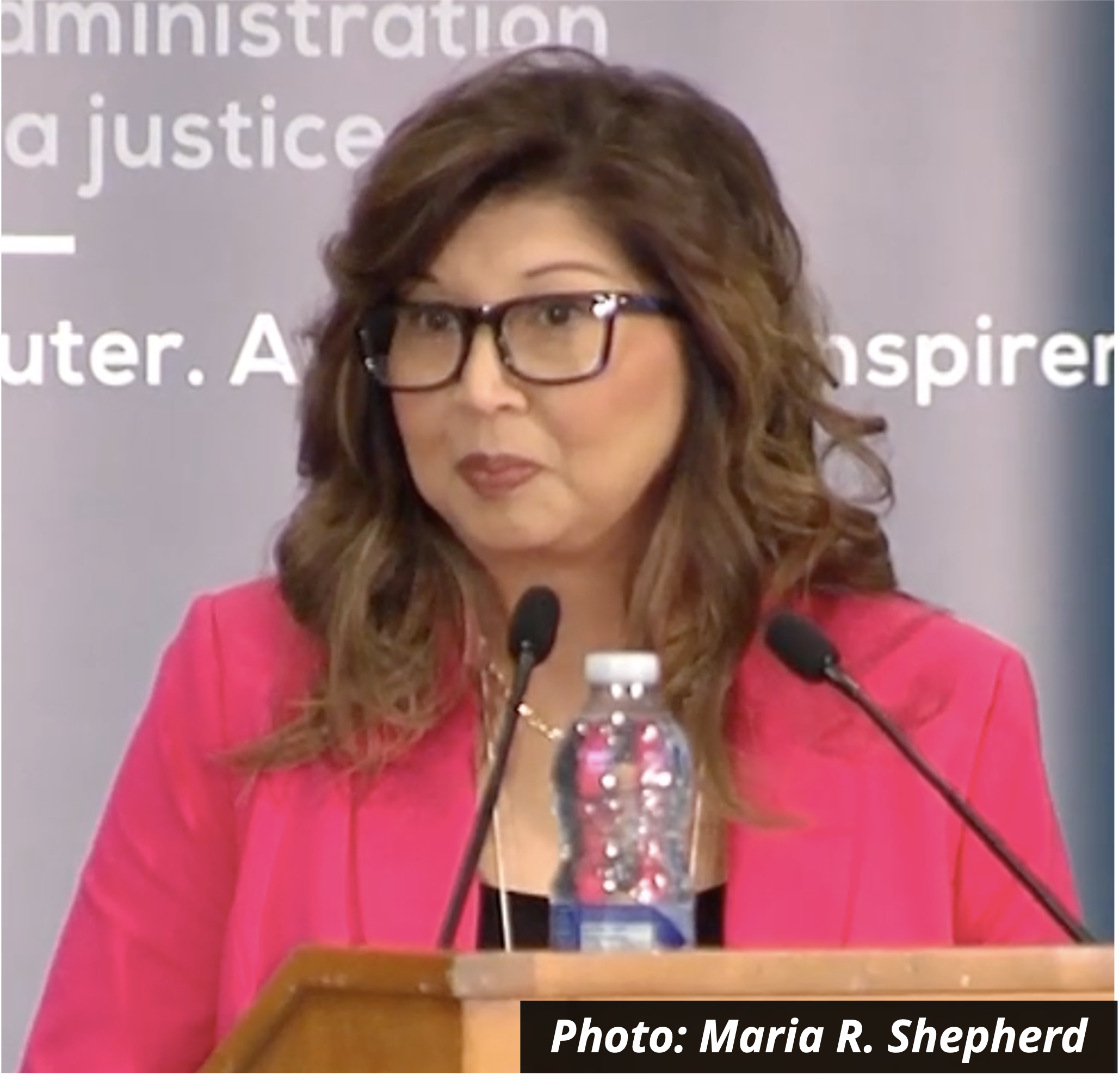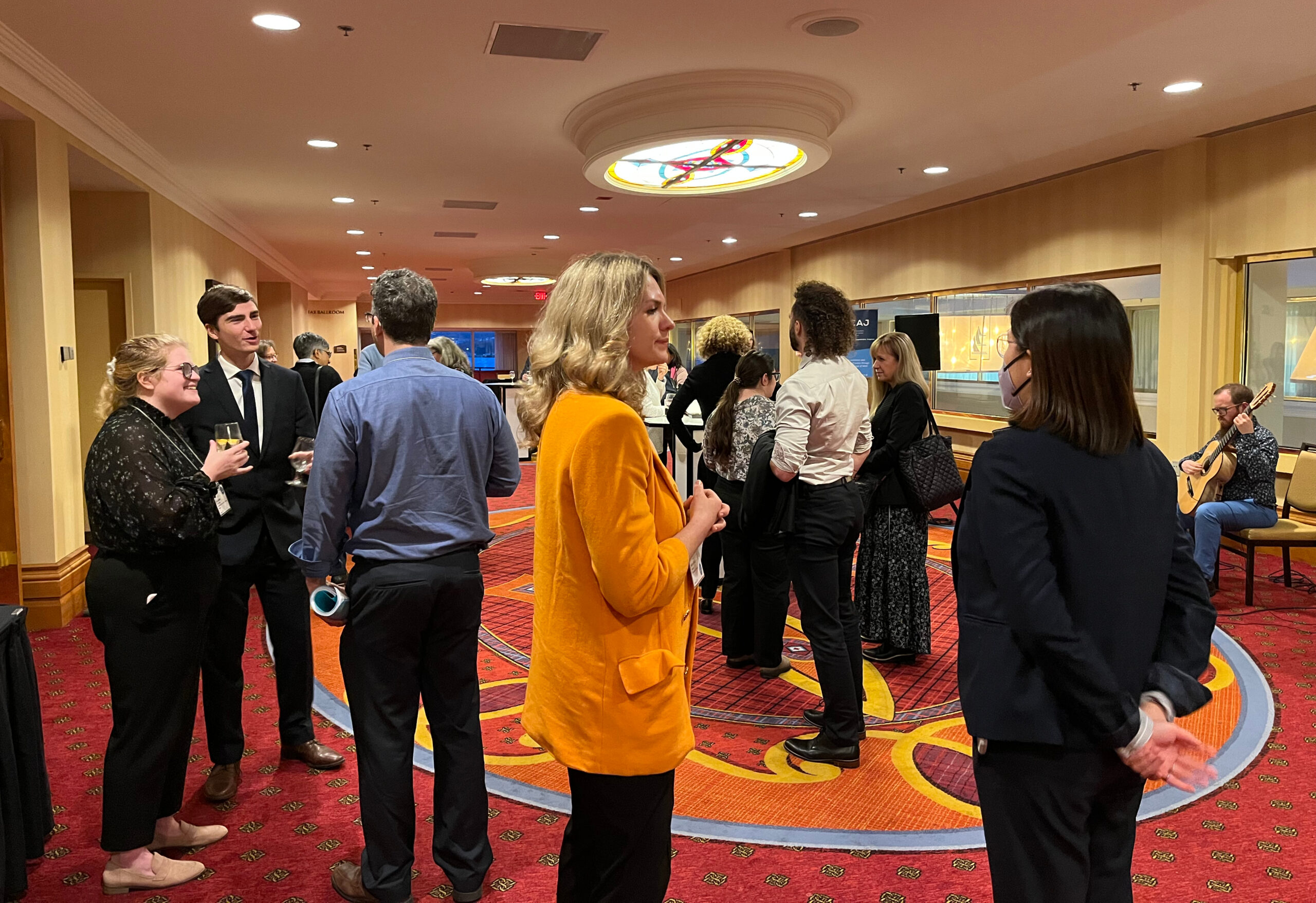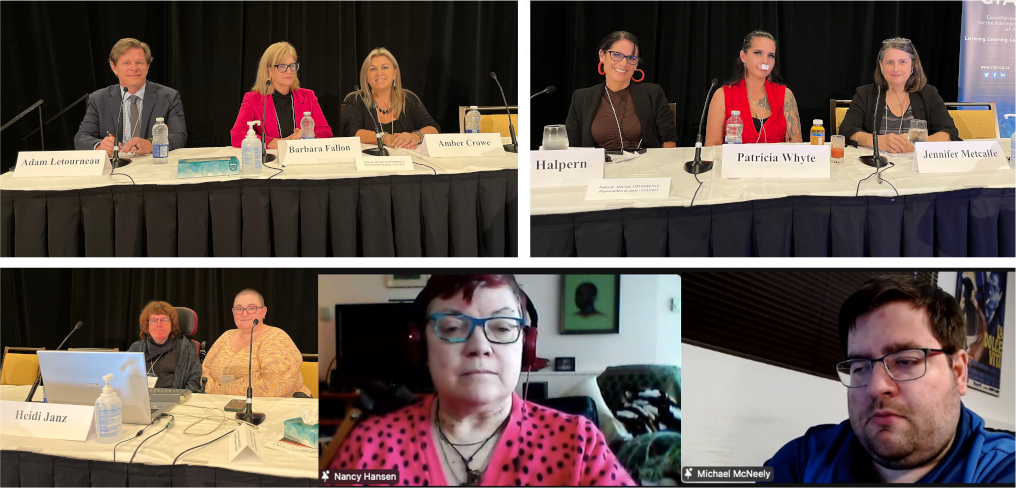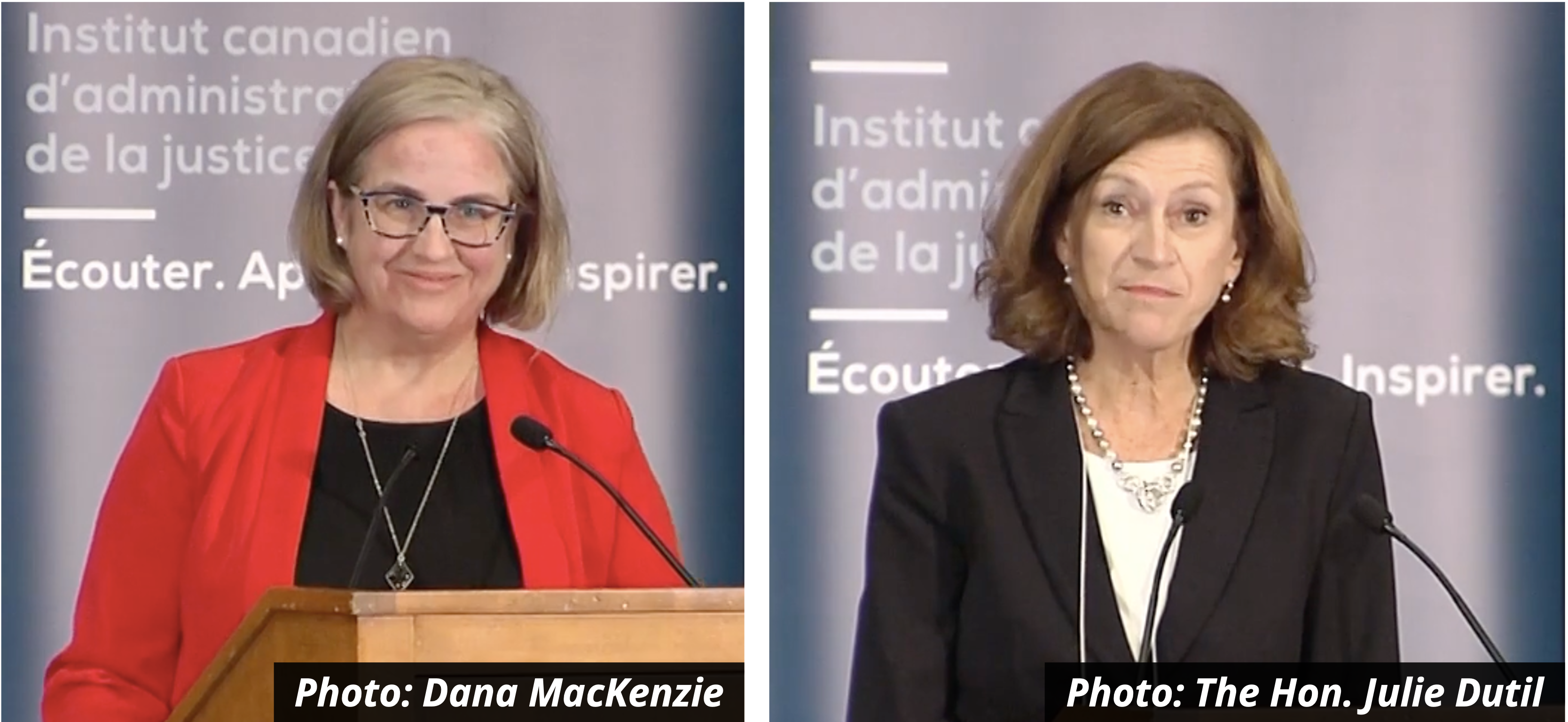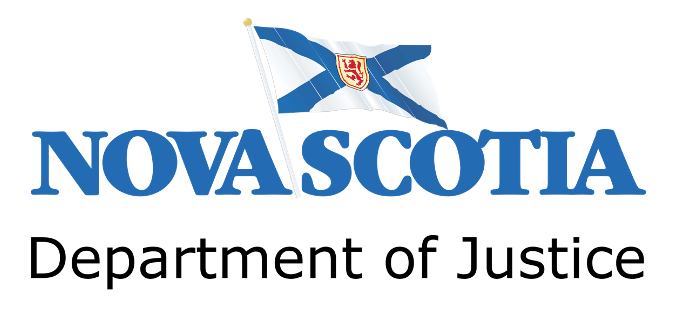A Review of CIAJ’s 46th Annual Conference on The Right to Dignity in Canadian Law
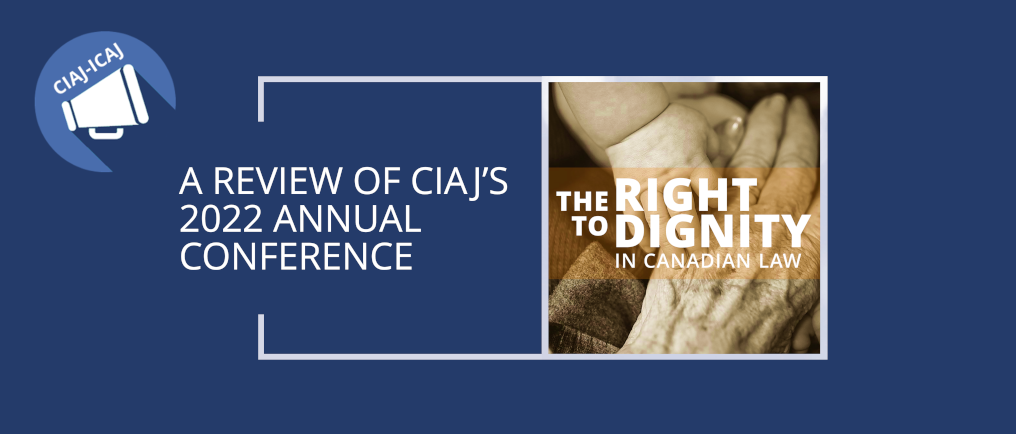
The Canadian Institute for the Administration of Justice held its 46th Annual Conference, entitled “The Right to Dignity in Canadian Law” from October 26-28, 2022. The conference took place in Nova Scotia, at the Halifax Marriott Harbourfront Hotel, and Online. It brought together over 150 speakers and participants. The conference addressed dignity as a fundamental human right. The nine panels and speakers explored the concept of dignity from a variety of perspectives, including moral and philosophical, and its application as a legal norm.
The videos of the event are available here and the related documentation here.
A first day filled with knowledge
The Master of Ceremonies, Jennifer Cox, K.C. (Senior Commission Counsel, Mass Casualty Commission) opened the Conference welcoming a member of her community for the Land Acknowledgement: Elder Catherine Martin (Member of the Millbrook Mi’kmaq First Nation Community, Truro, NS; Award-winning Filmmaker & Producer; Director, Indigenous Community Engagement, Dalhousie University). Elder Catherine Martin welcomed participants to the L’nu territory, sharing the language and songs of the Mi’kmaq Nation, playing the drum representing the beating heart of Mother Earth and the beating heart of our own mother.
In her first annual conference as CIAJ’s President, the Honourable Justice P. Colleen Suche (Court of King’s Bench of Manitoba) gave the welcome remarks. She then introduced the conference’s Honorary Chair: The Right Honourable Richard Wagner, P.C., Chief Justice of Canada, who had sent a video message.
CIAJ’s keynote speaker, Maria R. Shepherd (Principal, Sr. Paralegal & Notary Public, Shepherd Advocacy & Litigation; Co-Director, Innocence Canada) gave a moving and inspiring speech about her heartbreaking story, which concluded the introduction of the conference.
The first day featured three panels that contextualized the concept of dignity in law, while discussing its progress from a philosophical concept to a legal norm (Panel #1: From Notion to Norm: The Many Meanings of Dignity); explored wrongful convictions through a dignity-based approach (Panel #2: Wrongful Convictions); discussed themes relating to sex, gender identity, and reproduction, and, examined dignity-centric issues faced by members of diverse communities in the context of the health care system (Panel #3: Sex, Gender Identity, and Reproduction).
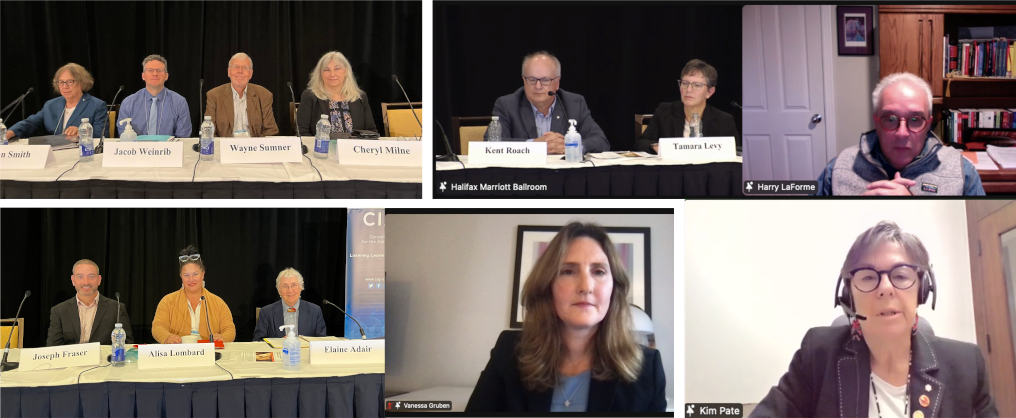
The first day of the conference concluded with a networking cocktail reception at the hotel, during which the recipient of CIAJ’s 2022 Justice Medal was unveiled. The Medal was given to the Honourable Rosalie Silberman Abella, for her outstanding legacy, remarkable career and influence on law and society, in Canada and internationally.
A second day dedicated to sharing experiences
Throughout the second day of the conference, several panellists shared their knowledge and personal experiences on various themes: restorative approaches to reconciliation that preserve the dignity of Indigenous peoples (Panel #4: Reconciliation: Restorative Approaches to Preserving Dignity); systemic ableism in Canada: the institutions, policies and social values that result from and perpetuate this harmful yet prevalent form of discrimination (Panel #5: The Systemic Ableism Within the Context of COVID-19 and Medical Assistance in Dying); and the connection between dignity and incarceration (Panel #6: Prisoner Justice: Dignity Through Decarceration).
A third day on diversity, including a special session open to all
Day 3 video PwC Canada Session
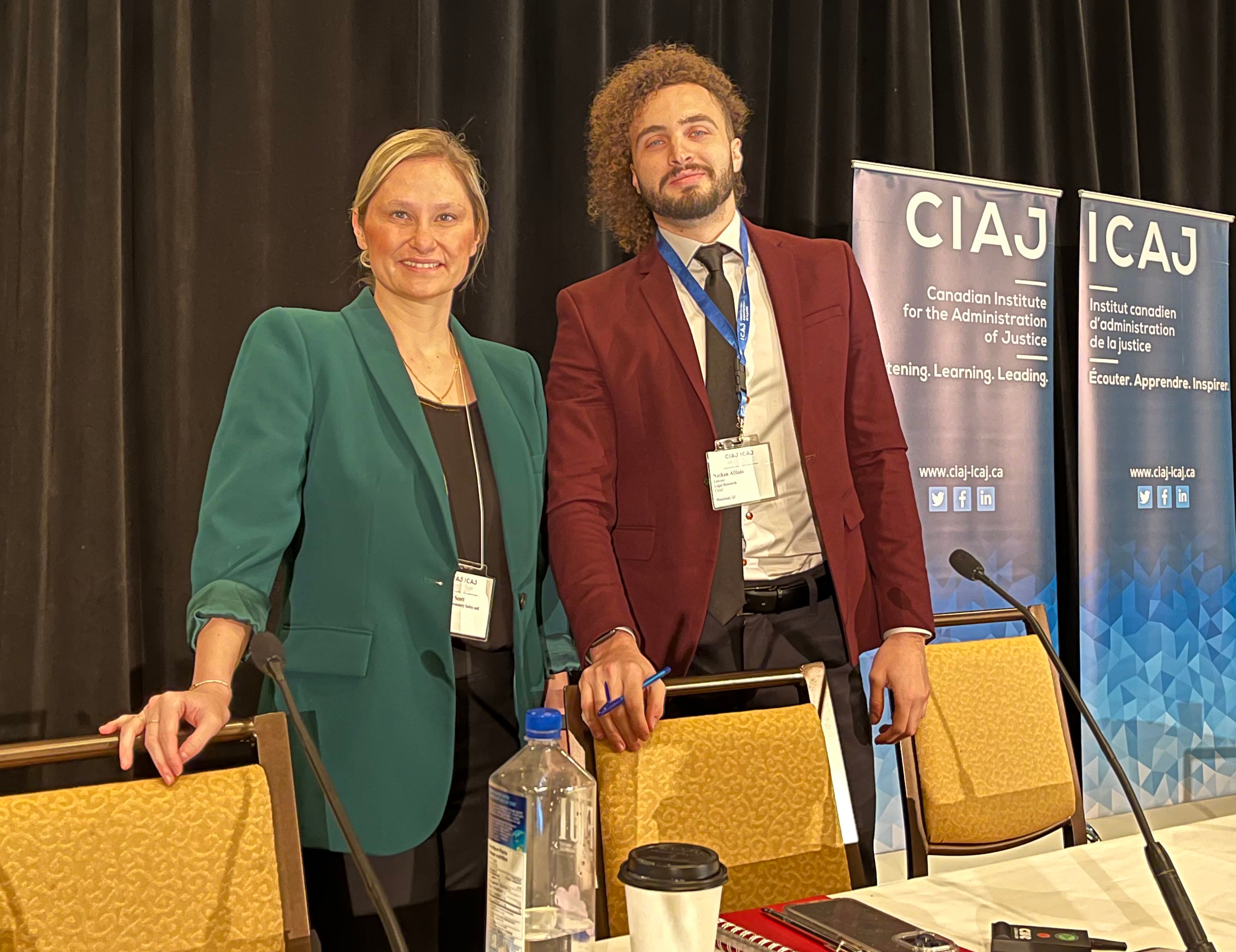 A special session presented by PwC Canada on “Trust and Dignity: What Do Citizens Want and Need in a Modern Justice System?” opened the third and final day of the annual conference with Rheanne Scott (Director, Justice and Community Safety, PwC Canada) and CIAJ’s Lawyer Nathan Afilalo. Following this, the day continued with the final three panels of the conference which allowed participants to hear the experiences and debates of students and experts on a wide range of areas: the inequity faced by women, non-binary people, the 2SLGBTQ+ community, BIPOC individuals, and those with disabilities in law school and legal practice (Student Panel #7: Diversity as Reality: Experiences of Law Students and Legal Professionals); the resilience of seniors and how their experiences, contributions and strengths can be leveraged to ensure healthy aging and lifelong well-being (Panel #8: Caring for Older People); and the developing subject of medical assistance in dying (MAID) in Canada (Panel #9: A Discussion on Medical Assistance in Dying).
A special session presented by PwC Canada on “Trust and Dignity: What Do Citizens Want and Need in a Modern Justice System?” opened the third and final day of the annual conference with Rheanne Scott (Director, Justice and Community Safety, PwC Canada) and CIAJ’s Lawyer Nathan Afilalo. Following this, the day continued with the final three panels of the conference which allowed participants to hear the experiences and debates of students and experts on a wide range of areas: the inequity faced by women, non-binary people, the 2SLGBTQ+ community, BIPOC individuals, and those with disabilities in law school and legal practice (Student Panel #7: Diversity as Reality: Experiences of Law Students and Legal Professionals); the resilience of seniors and how their experiences, contributions and strengths can be leveraged to ensure healthy aging and lifelong well-being (Panel #8: Caring for Older People); and the developing subject of medical assistance in dying (MAID) in Canada (Panel #9: A Discussion on Medical Assistance in Dying).
The 46th Annual Conference ended with a keynote address made by Dana MacKenzie, Associate Deputy Minister of Justice, Nova Scotia Department of Justice, and closing remarks by CIAJ’s First Vice-President, the Honourable Justice Julie Dutil (Court of Appeal of Québec).
Acknowledgements
CIAJ would like to thank all the participants and the experienced panellists who offered their expertise and personal experience throughout the conference, in person to Halifax and online.
A special thank you to all of our partners who made this conference possible:
- Major Partner: LexisNexis Canada
- PwC Canada
- Nova Scotia Department of Justice
Videos and documents of the event
You can find all the videos of the event, some of which are available for free, on this page: https://ciaj-icaj.ca/en/library/videos/webinars-cpd/#goto-2022-annual-conference-the-right-to-dignity
If you are interested in the theme of dignity, you can find resources and speakers’ presentations on this page: https://ciaj-icaj.ca/en/library/papers-and-articles/annual-conferences/#goto-2022-the-right-to-dignity-in-canadian-law

